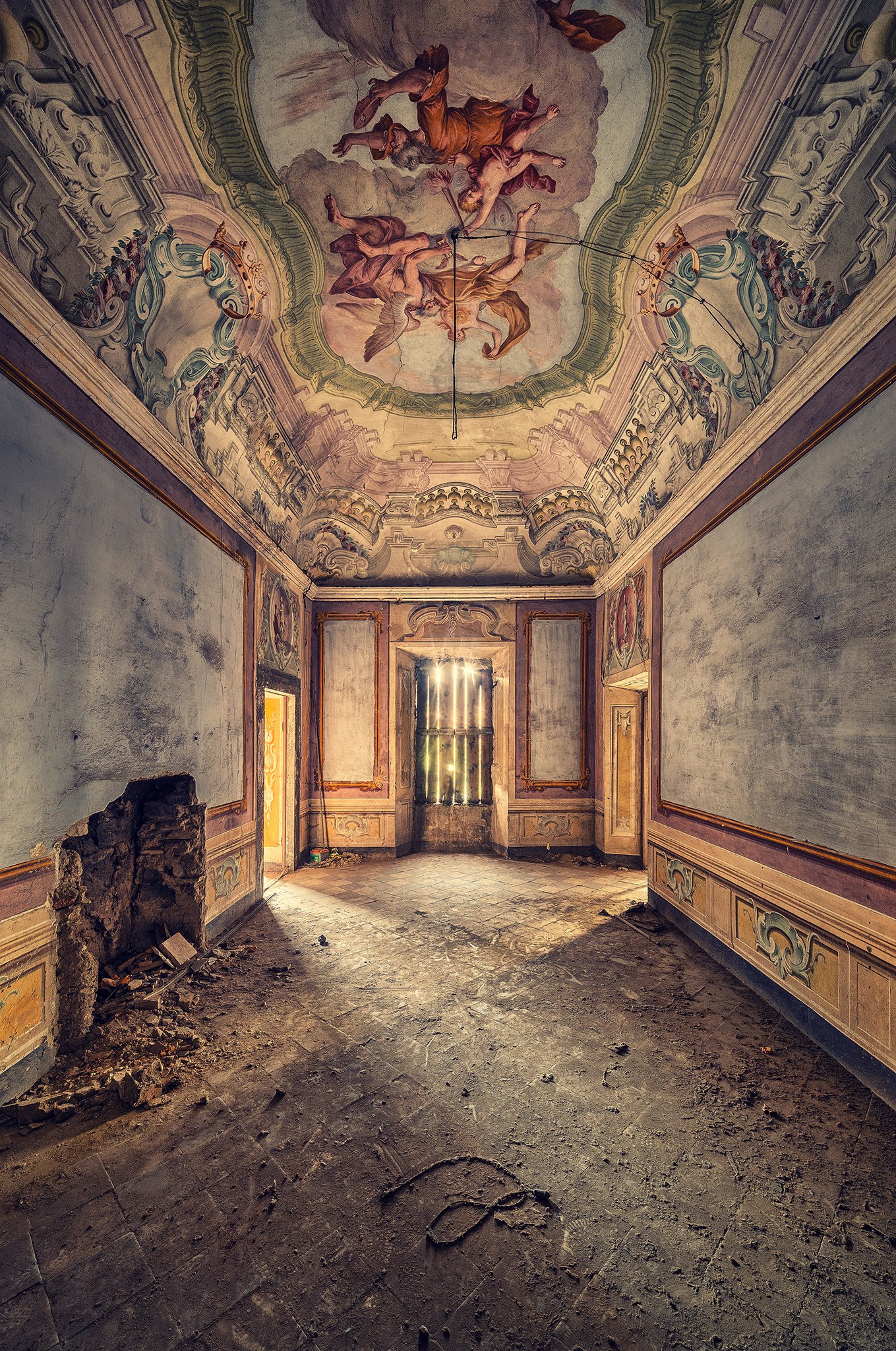There are abandoned buildings everywhere. Left forgotten and shuttered, they sit silently amid the noise of life continuing around them.
Usually, people don't notice them much, or if they do, they wonder when someone will get around to tearing that eyesore down.
But then there are photographers like Matthias Haker from Germany.
He travels around, camera in hand, slipping into abandoned, forgotten buildings to show us what secrets they've been holding inside for so many years.
He snaps photos of abandoned houses, apartment buildings, theaters, churches, and more, showing that even under dust and rubble, there's an incredible beauty, and evidence of a much-loved space.
What's most surprising, though, is the color! We think of abandoned buildings as gray and drab, but Haker's photos are rich with vibrant colors that remind us of the spaces' pasts.
Exploring the forgotten spaces is something that lets us glimpse the past, and sometimes even bring new life into it, the way one urban explorer does for her human photographer.
It reminds us that all places have stories, and that the past is worth remembering and honoring, even as time moves on.
[H/T: MessyNessyChic]
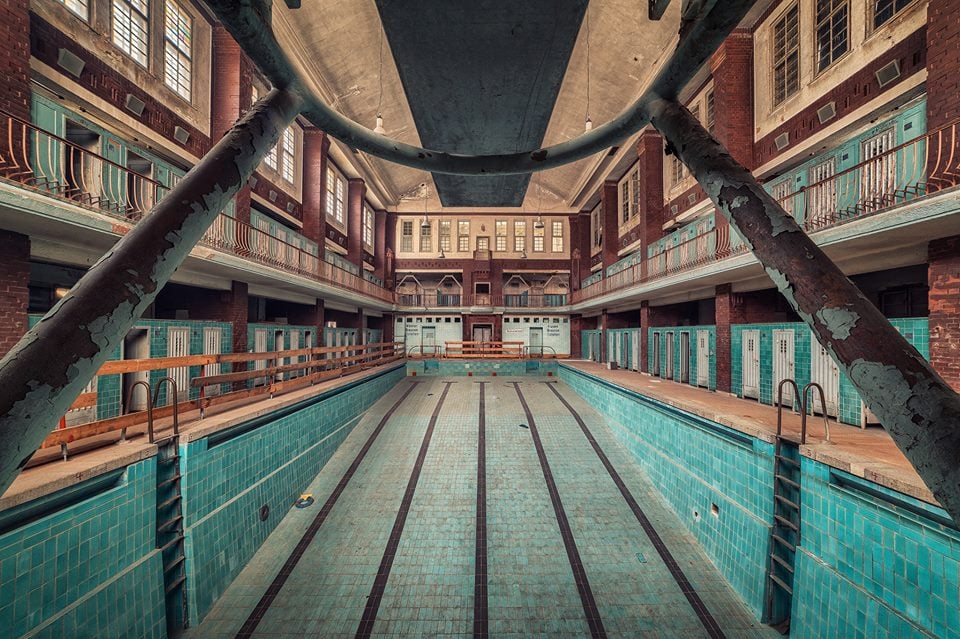
German photographer Matthias Haker spends his time exploring abandoned buildings when he's not photographing weddings and doing other commissioned work.
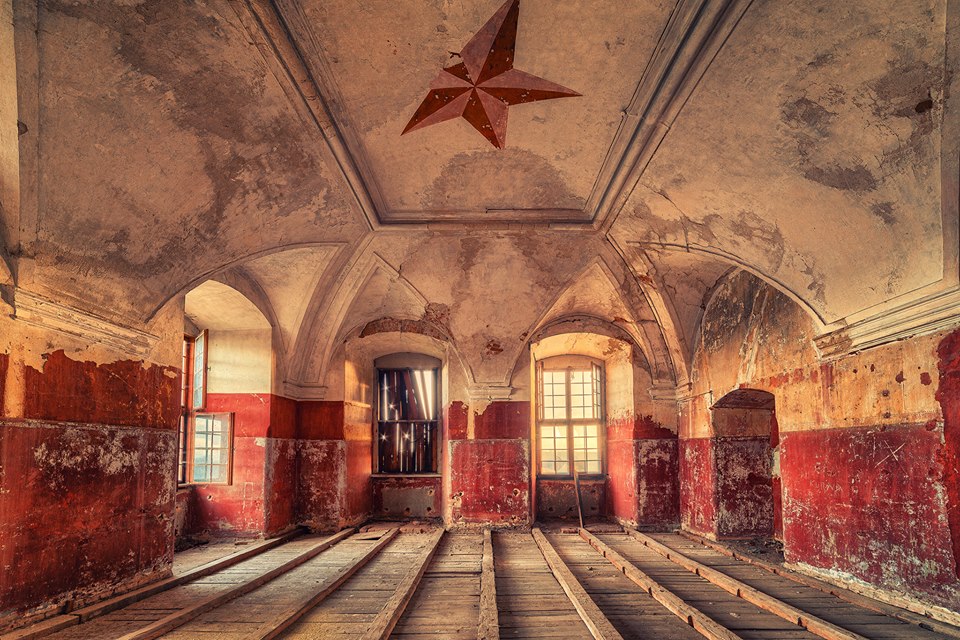
What's most striking about these places is how colorful they are, even amid the dust and debris. They show not only the care taken in designing and decorating the rooms, but also what they might have been used for.
Check out the star painted on this ceiling.
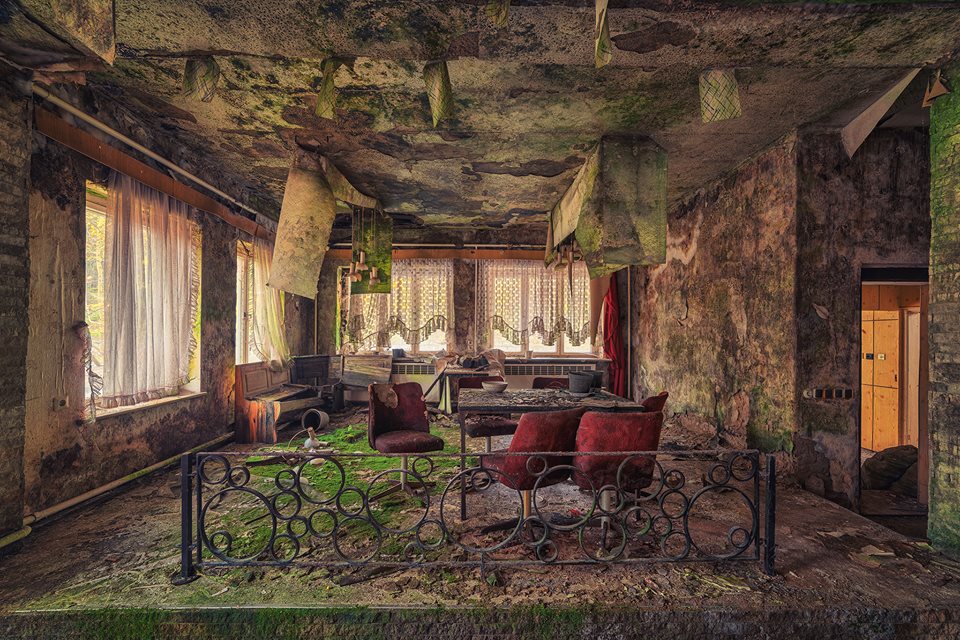
Other places have the addition of bright green thanks to creeping vegetation that's slowly overtaking the floors, walls, and furniture.
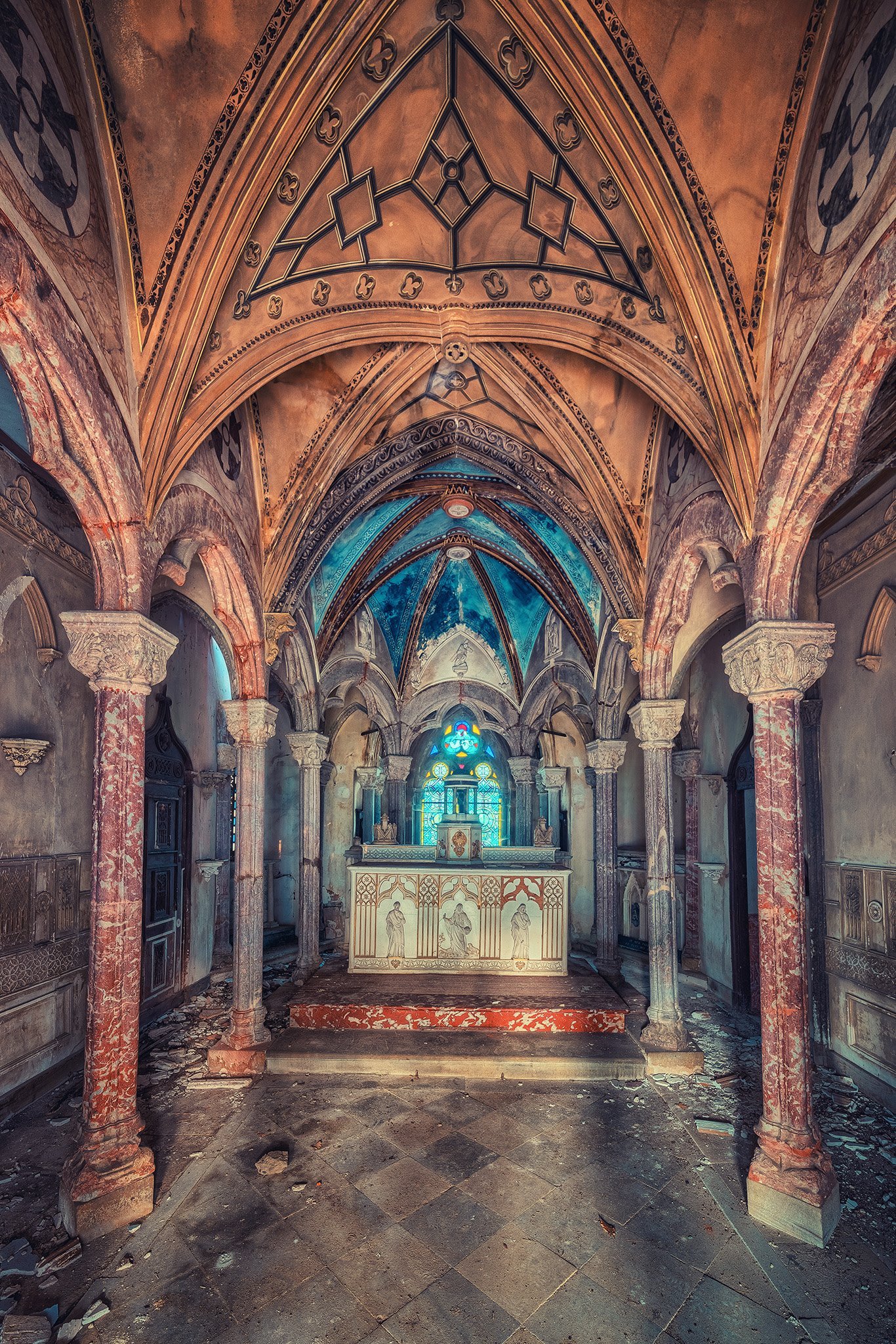
But even with all this color and detail, you can almost hear the silence and stillness of these places, and sense how long they've been holding that silence.
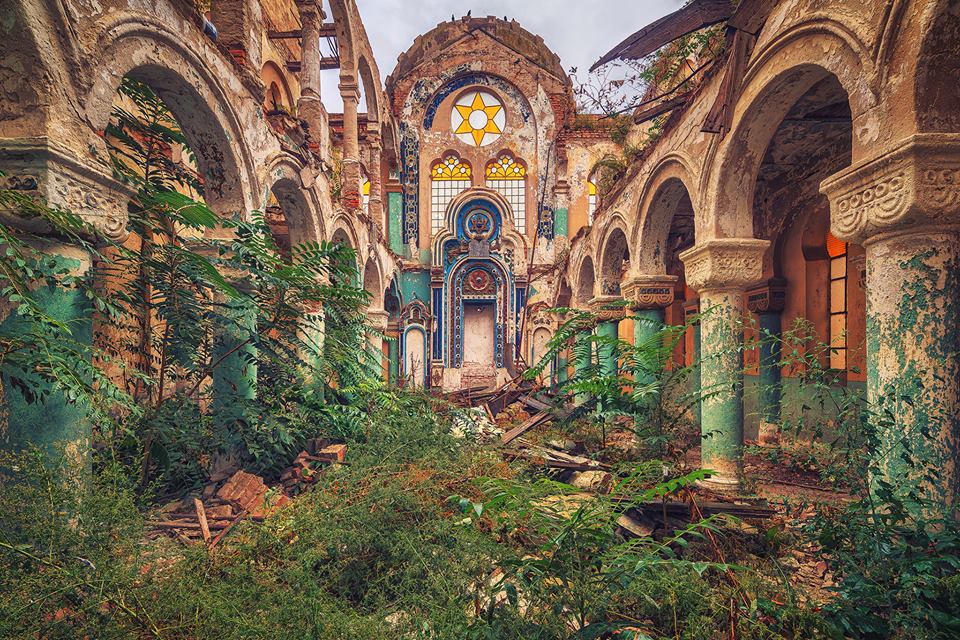
One thing you might wonder is where these places are. After all, how cool would it be to explore them? But Haker deliberately leaves their locations and information a mystery.
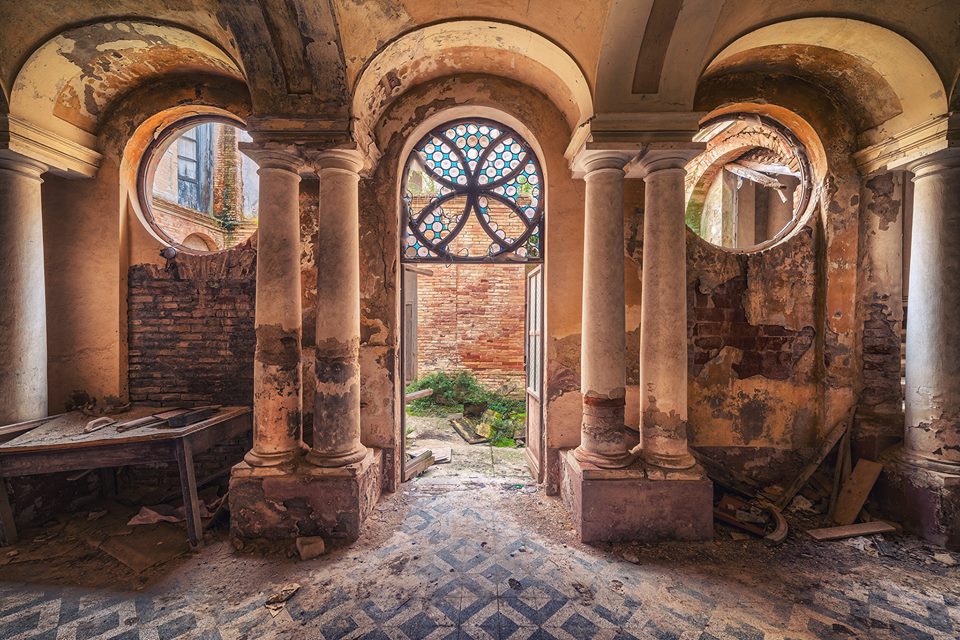
And it's not because he doesn't like sharing. It's because he doesn't want these beautiful, if forgotten, places to be damaged or vandalized by careless visitors.
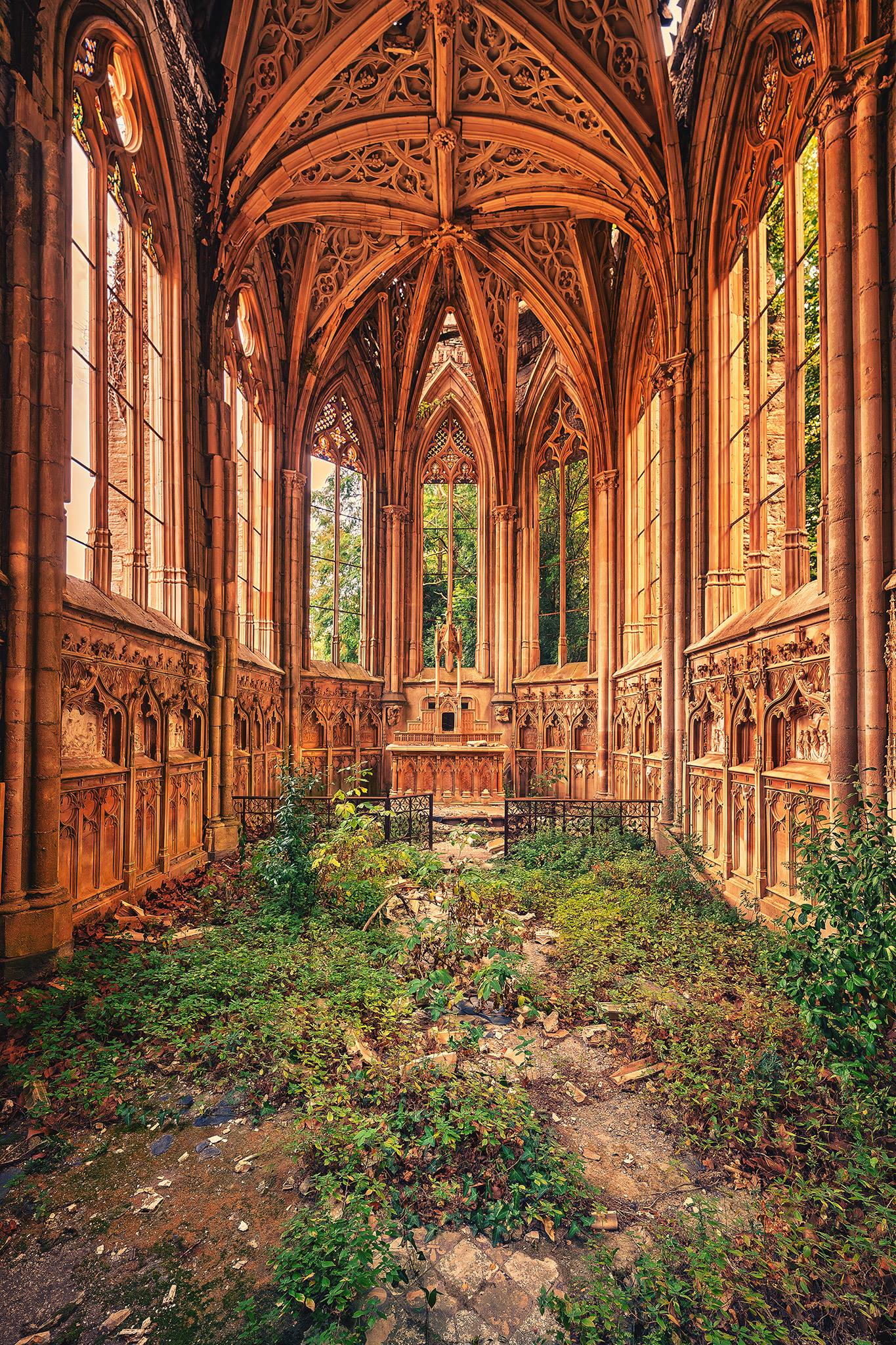
So for now, we'll just appreciate them through his photos.
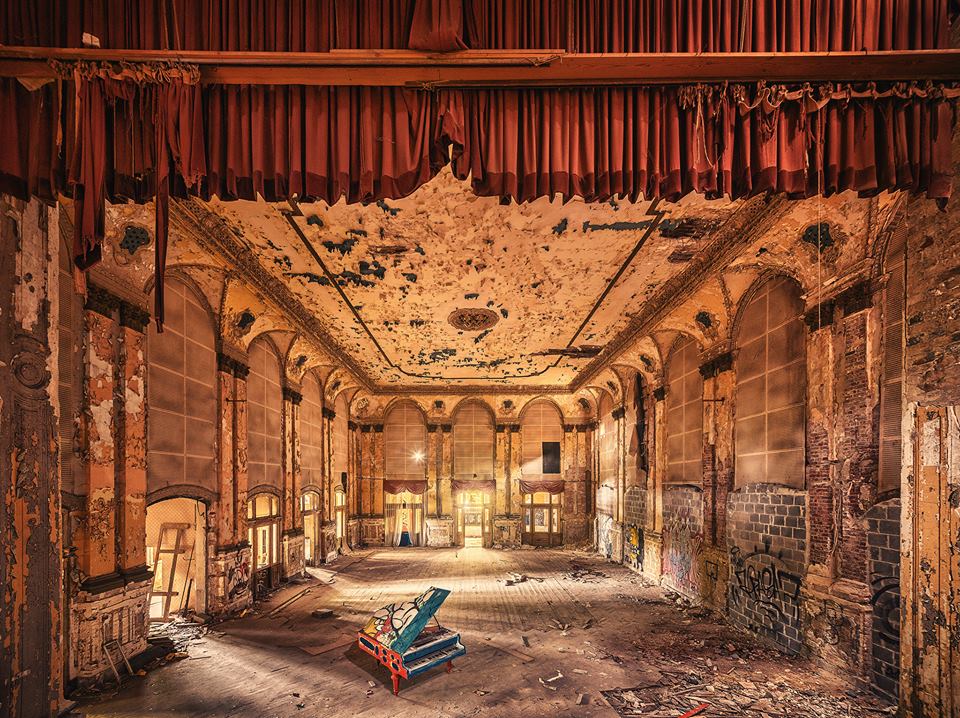
If other people stumble across these places during their own explorations, that's fine, but Haker prefers not to advertise their locations.
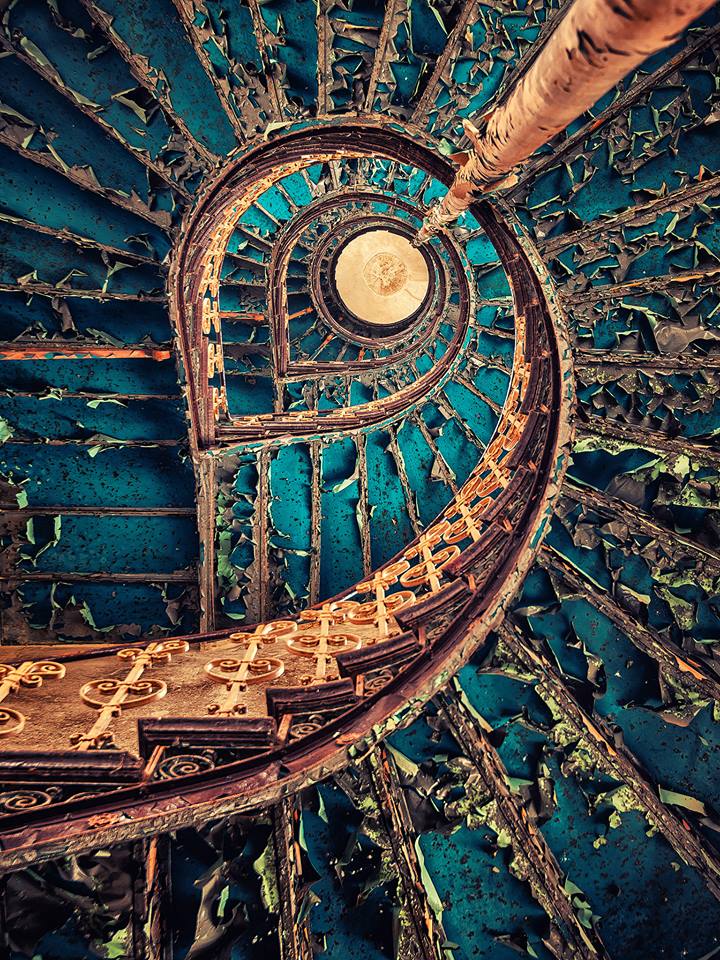
His photos are stunning, too, with their rich color and careful, almost mathematical compositions. You really get a sense for the architecture and space of the buildings.
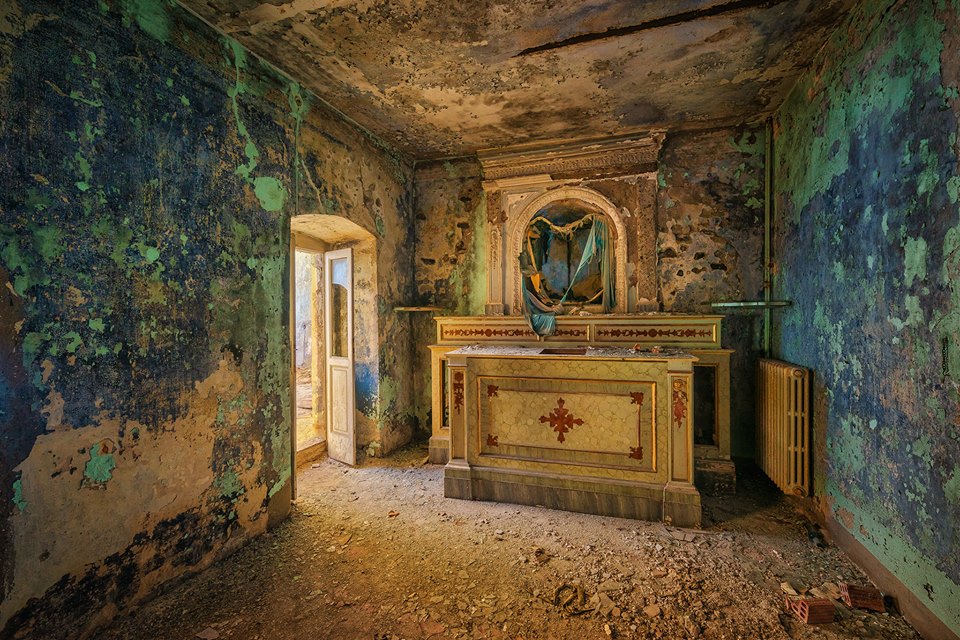
And looking at the care that went into the paint, decorations, and design, you can't help but feel a bit bad that it's all been left to crumble.
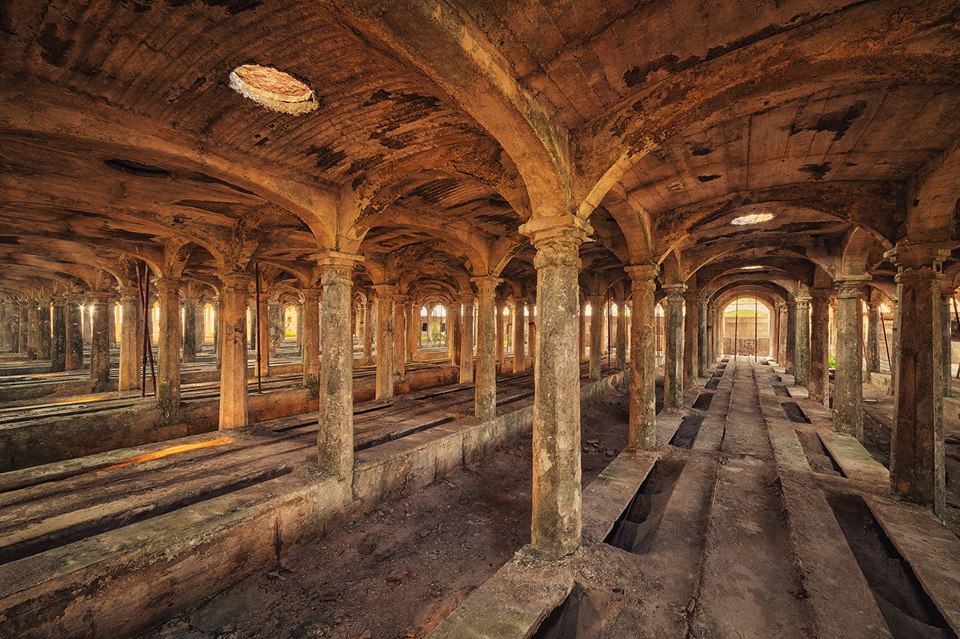
And it's also worth noting that while these places still stand waiting, there are so many new buildings being constructed right now.
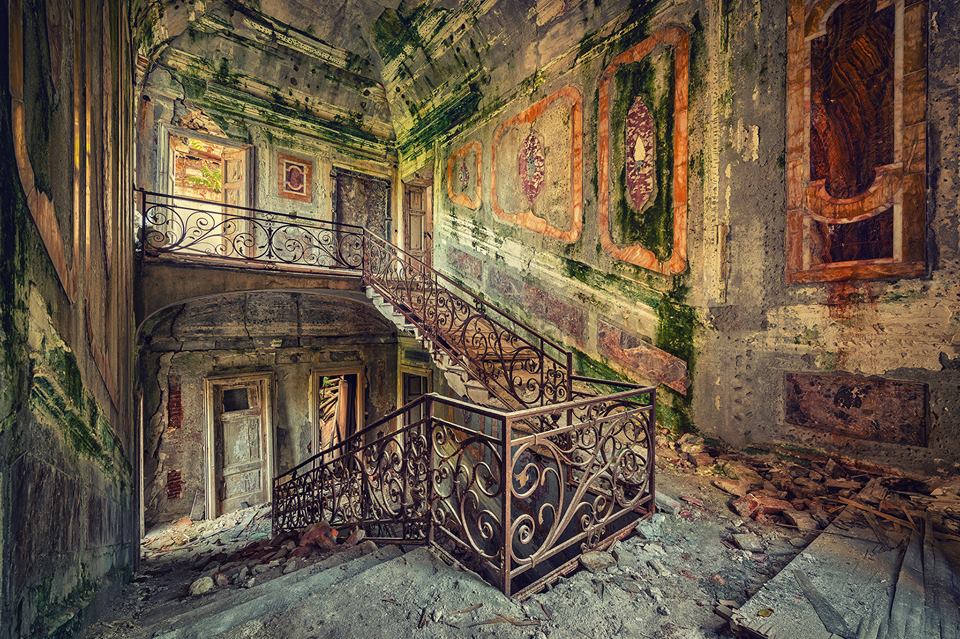
Will those modern buildings meet the same fate? And what will happen to these places?
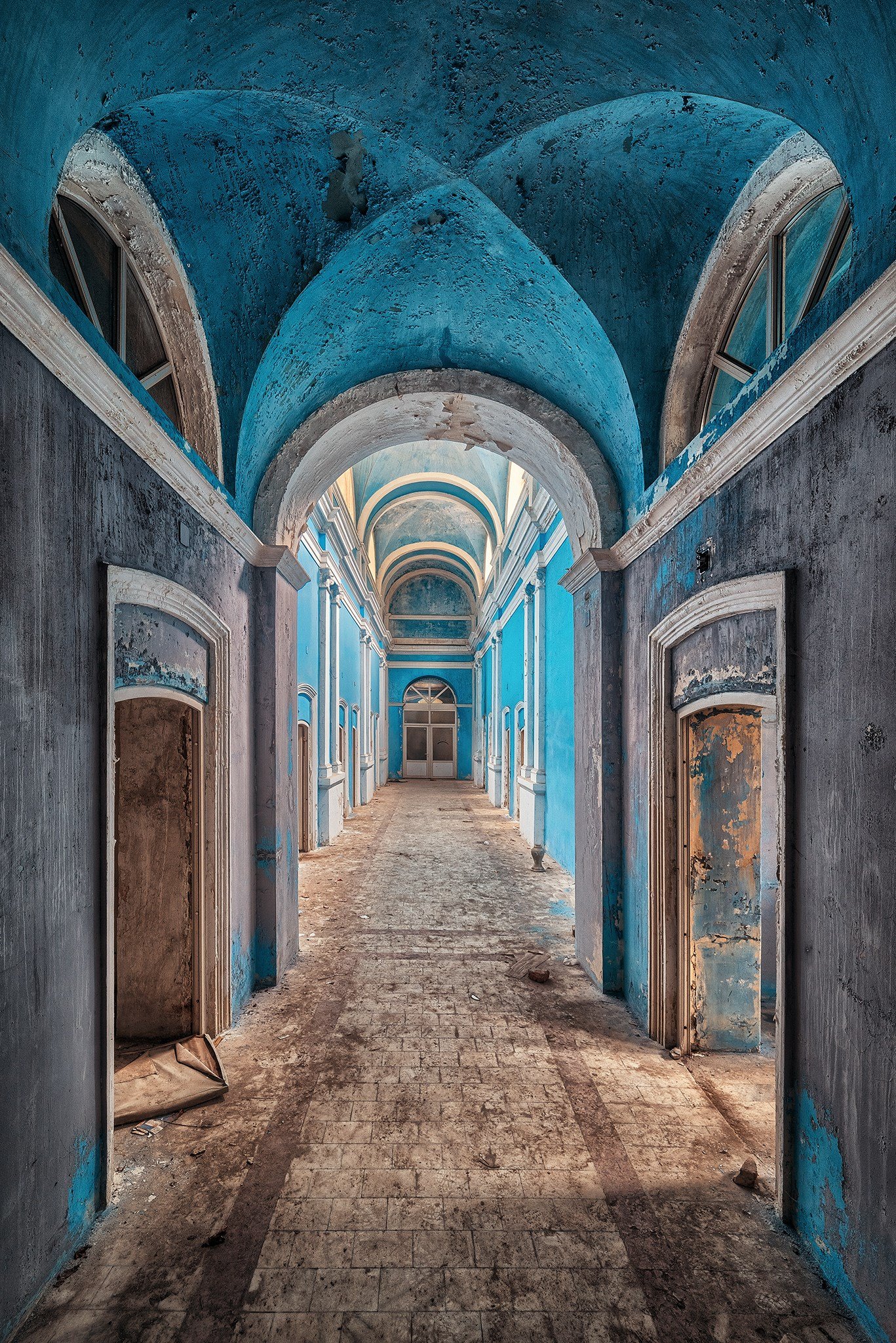
They may not last. They might be demolished for new construction, or they may simply fall apart.
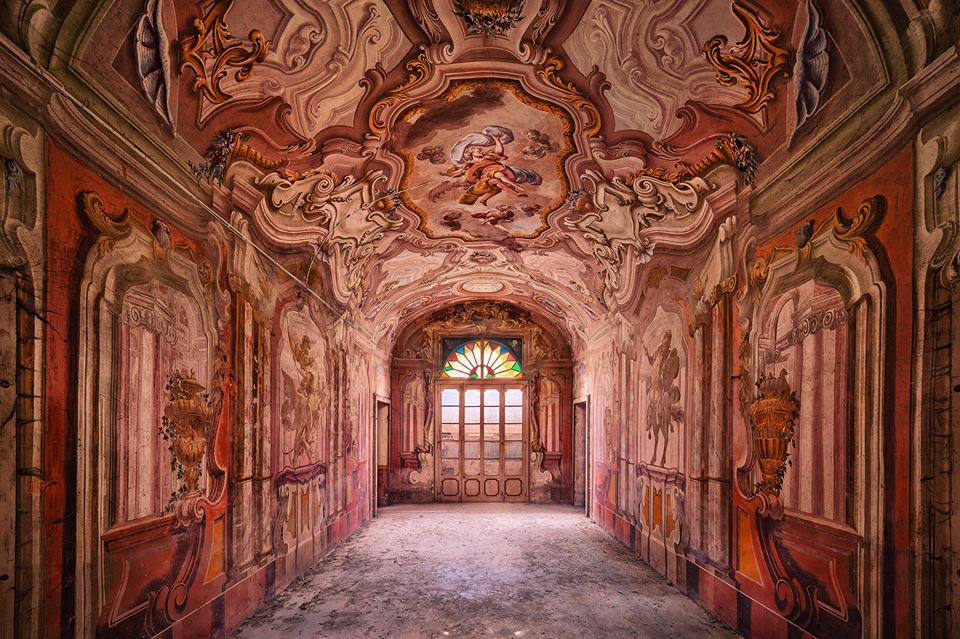
But thanks to Haker and other urban explorers, their memories can be preserved through photography.
